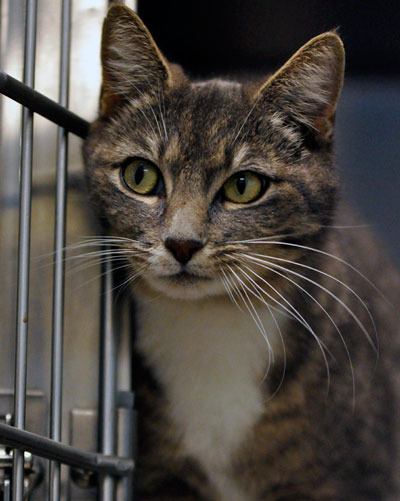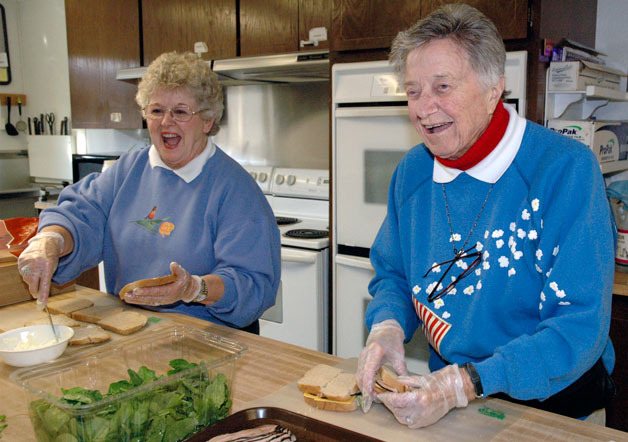ARLINGTON — At an April 22 workshop, the Arlington City Council considered the renewal of a contract with the Humane Society of Skagit Valley for the care and housing of stray animals found in Arlington, and while the contract has already saved money for the city, officials have additional ideas on how to drive down the cost for animal control.
“Spaying, neutering and microchipping are all critical,” said Arlington Police Chief Nelson Beazley. “People don’t realize what an impact that has. Microchipping allows us to return an animal to its home before it ever leaves Arlington.”
The Council was slated to vote on the contract renewal in a May 6 meeting, which occurred after press time. The proposed contract sets prices for the city to pay per animal. A live dog transferred to the Humane Society costs $95, while a live cat is $75. The charge for small livestock is $55, while birds, small rodents and reptiles are $25.
“Initially, we had a contract with the Everett Animal Shelter, but in 2010 we switched to the Humane Society and our prices dropped significantly,” said Beazley, who noted that there are several factors involved in lowering the costs for animal control. “In 2009, we paid $22,600 for animal control and in 2012 we only paid $4,100. It’s not just dollar per dollar, though. When the economy turned south, a lot of people abandoned their animals.”
Spaying and neutering pets can help lower costs to the city because less births means less strays. Microchipping is also an important part of owning an animal, according to Beazley. Microchipping involves installing a small chip under the animal’s skin, usually between their shoulders, and registering the numbers on the chip with the owner’s name and contact information. The Arlington Police Department, along with most other law enforcement agencies and veterinarians, has a microchip scanner that can determine if the animal has been chipped, and if it has, who owns it.
“As a general statement, I would say that people in Arlington are very good about chipping their animals,” said Beazley.
Janine Ceja is the shelter manager for the Humane Society of Skagit Valley, which is located in Burlington.
“Of course, to spay and neuter is a priority,” said Ceja. “Once you are involved in an animal rescue, your eyes really open and you gain a deeper understanding of why it is important. Even as a pet owner you reap benefits — they are physically healthier and more companion-oriented. There is less aggression and less territorial behavior. We have a commitment for including microchip implants and registration with adoptions. The microchip doesn’t work unless it is registered with information.”
The Humane Society has contracts with several surrounding cities, including Mount Vernon, which has an active animal control and licensing program for dogs and cats, just like Arlington, which charges $5 for the licensing of altered animals with a microchip.
“The benefit of having a city with a licensing program is that there is more awareness on how an animal should be vaccinated,” said Ceja. “The other benefit of having a licensing program is that the city can encourage spay and neuter, with a free or low-cost licensing fee for altered animals.”
Spring is usually a busy season for area shelters as they deal with an influx of pregnant or nursing animals as well as orphaned litters. This time of the year is known in the animal rescue scene as “baby season.”
“We started seeing pregnant animals as early as January this year,” said Ceja. “It absolutely puts an extra burden on the shelter. We’ve been fortunate so far, but it is early in the year. We will start to see more and more babies through to the end of June.”
Ceja echoed Beazley’s thoughts that the economy affected the amount of animals being processed through local shelters.
“When the economy got rough, we had a lot of people surrender their pets because they lost their house, or because they had to take on extra jobs and didn’t have the time to care for them anymore,” she said.
While the difficult financial environment can be a burden on pet owners, there are many local options for low-cost animal care.
The Humane Society offers a low-income monthly spay and neuter program. The Northwest Organization for Animal Help in Stanwood offers low-income spay, neuter and microchipping services, while PAWS in Lynnwood also offers low-income spay and neuter programs.
For more information on the Humane Society of Skagit Valley, or to view adoptable animals, visit www.skagithumane.com. For more information about the city’s of Arlington’s pet licensing requirements, go to the city’s website at www.arlingtonwa.gov.







